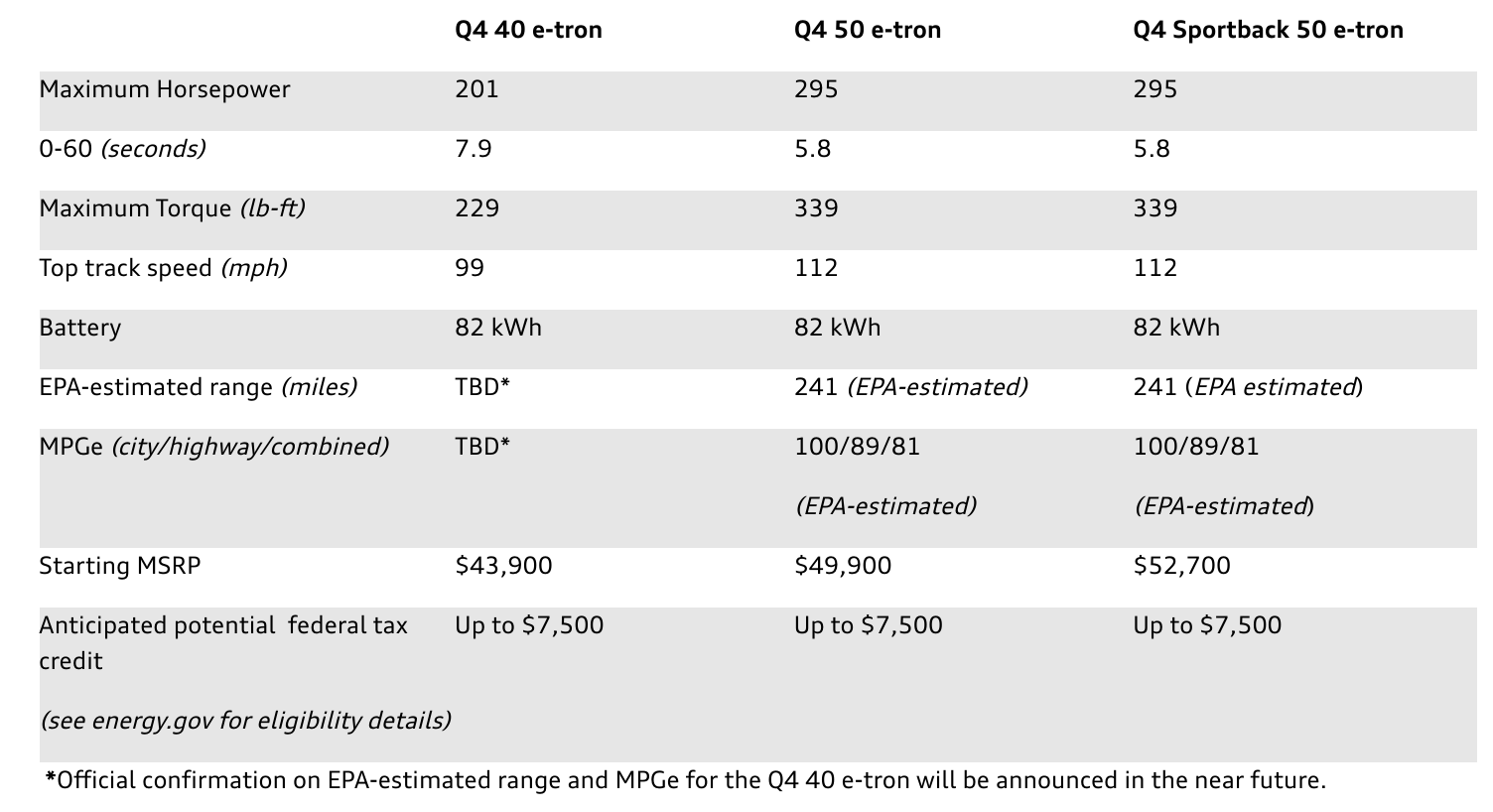Audi has launched the Q4 e-tron, the fifth electric vehicle in its growing portfolio, as part of the German automaker’s plan to bring more than 30 EVs and plug-in hybrids to market by 2025.
The Q4 e-tron is Audi’s entry electric SUV model and the price reflects that. The vehicle, which was first revealed as a concept at the 2019 Geneva International Motor Show, has a starting price of $44,995, including the $1,095 destination charge. It’s worth noting that the Q4 electric vehicle is about $1,000 cheaper than the gas-powered 2022 Q5 SUV.
The Q4 e-tron is more like a family of vehicles with three members. There is the Q4 50 e-tron and a Q4 Sportback 50 quattro, a variation that is all-wheel drive and powered by dual asynchronous motors. Both of these vehicles have an estimated EPA range of 241 miles.
Then there’s the Q4 40 e-tron, which is rear-wheel drive and powered by a single asynchronous electric motor. The EPA estimates for the Q4 40 e-tron has not been released. Here’s a breakdown of some of the basic specs below.
The new Q4, as TechCrunch noted earlier this year, is packed with tech in its stout-looking package, notably the option to add an AR-enabled windshield.
The Q4 is a larger compact SUV with a short overhang and wheelbase of 9.1 feet. This makes the Q4 look compact from the outside. Inside though, there is combination there’s an interior of 6 feet in length, the kind of space found in a large full-size class SUV. The Q4 40 e-tron and Q4 50 e-tron models come standard with 19′-inch wheels equipped with all-season tires. The Sportback variant of the Q4 50 e-tron quattro receives larger standard 20-inch wheels with all-season tires, according to Audi.
Importantly, the Q4 also shares the same architecture with parent company VW’s modular electric drive toolkit chassis, or MEB platform. This flexible modular system, which was first introduced by VW in 2016, was developed to make it more efficient and cost-effective to produce a variety of EVs.


